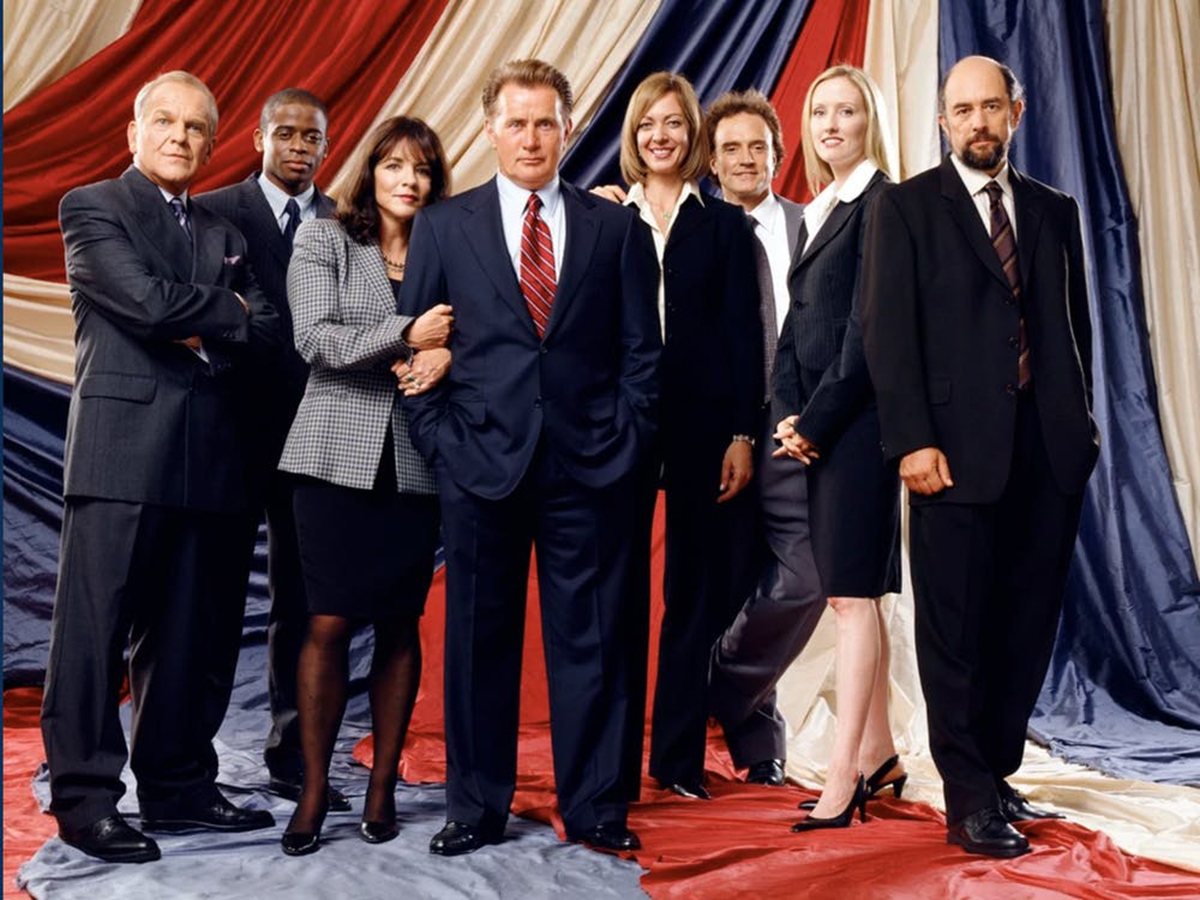
Debuting in 1999, NBC’s “The West Wing” placed audiences right in the middle of the day-to-day operations of the White House staff. Featuring breathtaking writing from series creator Aaron Sorkin, “The West Wing” crafts a compelling narrative across its seven outstanding seasons.
“The West Wing” follows the fictional presidency of Josiah “Jed” Bartlett (Martin Sheen) and his senior White House staff as they handle the day-to-day functionings of the executive branch. Over the course of the show’s seven seasons, the Bartlett administration tackles a litany of controversial political issues, ranging from homosexuals in the military to the sale and purchase of firearms. What makes this show even more refreshing than just its insightful takes on pressing issues is the strict adherence to political realities. Bartlett’s administration is not a perfect presidency. He is unable to pass every policy he pushes or win every battle he chooses to fight, just as a real life president does. The show takes audiences behind the scenes and has them witness the political maneuverings and partisan politics of the U.S. government, which isn’t always pretty. It’s this imperfect portrayal of a U.S. president that is unable to achieve everything on his agenda that makes the show so compelling, and it makes his on-screen achievements even more rewarding.
This show’s writing and storytelling can be described as nothing less than exceptional, and that is only made greater thanks to its excellent cast. Featuring a stacked cast of exceptional on-screen talent that includes Martin Sheen, John Spencer and Allison Janney, “The West Wing” presents the audience with complex and compelling characters that each endear themselves to viewers. As I write this, I struggle to name a single character, series lead or guest star, that didn’t stand out or capture my interest and appreciation in some capacity. Sorkin’s expert dialogue is artfully delivered by this stunning cast as they tackle crisis after crisis.
Though Jed Bartlett is the president, it’s his senior staff that comprise the majority of the show. The relationships that exist between the staff elevates the quality of the storytelling as audiences experience the highs and lows of each cast member. For a show that covers so many political issues that are sure to divide viewers’ opinions, it’s a testament to the writing and character portrayals that audiences can’t help but root for them despite any political bias.
Furthermore, it’s not just the upper echelons of the West Wing that are given the spotlight in the show, but also the secretaries, researchers and counsel that help achieve the president’s policy agenda. Some of the show’s most heartfelt or comedic moments come from interactions between Deputy Chief of Staff Josh Lyman (Bradley Whitford) and his Senior Assistant Donna Moss (Janel Moloney). Never is there a dull moment in this show as Sorkin’s remarkable writing and the cast’s masterclass performances can transform even the most mundane political subject into a captivating discussion of American political realities.
Perhaps the most impressive feat “The West Wing” achieves is its insightful and respectful handling of touchy political topics. Taking place in the early 2000s, this show covers a lot of ground and addresses some of the most controversial political subjects of its time, some of which we struggle with still today. Throughout the course of the show, Jed Bartlett and his administration are faced with challenges stemming from religion, terrorism, gay rights, gun violence and countless other subjects. Plus, as previously mentioned, Bartlett doesn’t always win his fights. The painful realization that it is nearly impossible for any one president to achieve the breadth of his policy agenda is made abundantly clear in this show, but it never stops the subject from being addressed. “The West Wing” provides a masterclass in political theory and philosophy, respectfully presenting both sides on a range of issues as they engage in insightful political debate and discourse behind the scenes in the halls of the West Wing.
Aaron Sorkin’s “The West Wing” presents a brilliant and artfully realistic representation of the daily occurrences of the executive branch. It presents to audiences a refreshingly flawed yet realistic White House where all the problems of the world are not solved on a daily basis, but rather one where insightful discourse dominates.







